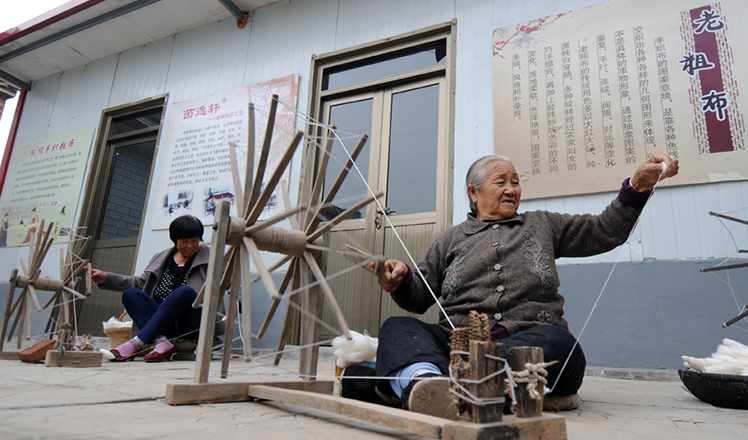Keeping kids out of trouble
Updated: 2016-10-21 07:08
(China Daily)
|
||||||||
 |
|
Qin Xiaohui, plays games with his friends in a field in Balie village of Dahua Yao autonomous county, South China's Guangxi Zhuang autonomous region on July 5, 2012.[Photo/Xinhua] |
A report published by the National Health and Family Planning Commission on Wednesday indicates that the migrant population in China reached 247 million in 2015, or 18 percent of its total population.
Such a large floating population has created a series of problems and challenges, such as the huge security concerns stemming from the low senior high school enrollment rate among teenagers left behind by their parents when they move from their rural hometowns to the cities to work.
The most recent statistics from the Supreme People's Court show that in 2013 crimes committed by left-behind children accounted for 70 percent of the country's juvenile delinquency cases, and that the percentage is gradually rising.
Despite the existence of other factors behind such offenses, the lack of attendance at school is believed to be one of the most significant. If a country has one more school, it will have one less jail, as Victor Hugo put it.
The 2015 national educational development bulletin published in early July puts the country's gross senior high school enrollment rate at 87 percent, but the rate for left-behind teenagers is 20 percentage points lower. For many minors, dropping out of school-along with the lack of necessary family supervision-mean they are likely to go astray.
The most pressing problem is how to take practical and workable measures to remove obstacles that keep the children of migrant workers outside the education system in the places where their parents work. For migrant workers, the biggest dilemma is their inability to cross the high access threshold set by the local authorities for household registration in the cities where they work.
Without taking effective institutional measures to solve the education problem for the children of migrants, more problems and challenges will crop up in the future.
--Beijing Times

 Trump refuses to say he will accept election results
Trump refuses to say he will accept election results
 Top guns: Airshow China in past two decades
Top guns: Airshow China in past two decades
 Street photographer captures hustle-bustle of Beijing
Street photographer captures hustle-bustle of Beijing
 Five-time Olympic champion diver Chen Ruolin retires
Five-time Olympic champion diver Chen Ruolin retires
 Glimpse into lifestyle of astronauts in space
Glimpse into lifestyle of astronauts in space
 Shenzhou XI spacecraft docks with Tiangong-2 space lab
Shenzhou XI spacecraft docks with Tiangong-2 space lab
 Typhoon Sarika makes landfall in South China
Typhoon Sarika makes landfall in South China
 Handmade coarse cloth gets new shine
Handmade coarse cloth gets new shine
Most Viewed
Editor's Picks

|

|

|

|

|

|
Today's Top News
'Zero Hunger Run' held in Rome
Trump outlines anti-terror plan, proposing extreme vetting for immigrants
Phelps puts spotlight on cupping
US launches airstrikes against IS targets in Libya's Sirte
Ministry slams US-Korean THAAD deployment
Two police officers shot at protest in Dallas
Abe's blame game reveals his policies failing to get results
Ending wildlife trafficking must be policy priority in Asia
US Weekly

|

|







